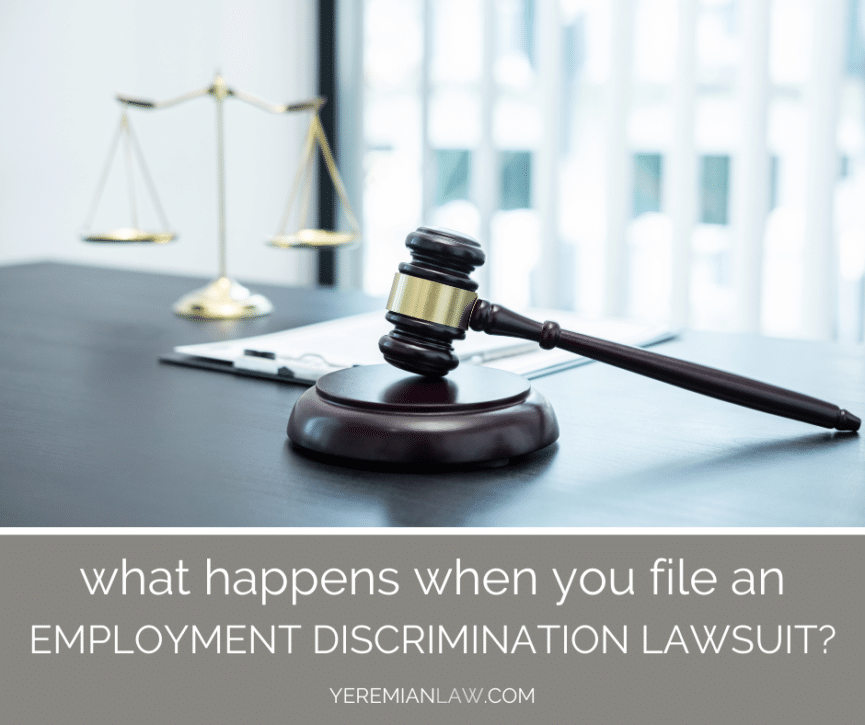If you’ve been the victim of workplace discrimination in California, you may be wondering what happens next. The process of filing an employment discrimination lawsuit in California can be complex, but it doesn’t have to be overwhelming. Here’s a brief overview, but first, you should contact an employment attorney if you think you may have a case.
How to Know if You Have Grounds for an Employment Discrimination Claim in California
There are many different types of workplace discrimination, but not all of them are illegal in California. The state’s anti-discrimination laws protect employees from being treated unfairly based on certain protected characteristics, including:
- Race
- Color
- National origin
- Religion
- Sex (including pregnancy, childbirth, or related medical conditions)
- Sexual orientation
- Gender identity
- Age (40 or older)
- Genetic information
- Disability
- Medical condition (cancer or a positive HIV test result, for example)
If you believe that you’ve been treated unfairly at work because of any of these protected characteristics, you may have grounds for an employment discrimination claim in California.
Related: What to know about illegal job interview questions
How Do Lawsuits for Employment Discrimination Work?
Lawsuits for employment discrimination work in much the same way that other lawsuits do. The following sections explain each step.
Step 1: Filing a Discrimination Claim With DFEH or EEOC
Before you can file a lawsuit, you must first file a claim with either the California Department of Fair Employment and Housing (DFEH) or the Equal Employment Opportunity Commission (EEOC). You have one year from the date of the alleged discrimination to file your claim.
If you choose to file with DFEH, the agency will investigate your claim and decide whether or not to file a lawsuit on your behalf. If DFEH declines to take action, you will be given a “right to sue” letter that will allow you to file a private lawsuit.
If you choose to file with EEOC, the agency will also investigate your claim but may attempt to reach a settlement with your employer before filing a lawsuit. If EEOC is unable to settle the case, you will also be given a “right to sue” letter.
Related: Can you be fired for being trans in California?
Step 2: Filing Your Lawsuit
After you receive your “right to sue” letter, you have 90 days to file a private lawsuit in court. If you don’t file within that time frame, you will waive your right to sue.
Your lawsuit will be filed in the Superior Court of California in the county where the alleged discrimination occurred. If you’re seeking more than $25,000 in damages, you may have to file in federal court.
Step 3: Discovery
After your lawsuit has been filed, both sides will have the opportunity to gather evidence through the discovery process. This may involve exchanging written questions (interrogatories), requesting documents, and taking depositions (testimony given under oath outside of court).
Related: California workers’ rights to harassment-free workplaces
Step 4: Trial
If your case does not settle during discovery, it will go to trial. A jury will hear evidence from both sides and decide whether the employer engaged in discrimination. If the jury finds in your favor, you may be awarded damages, including back pay, front pay, and compensatory damages for emotional distress.
Filing an employment discrimination lawsuit in California can be a complex process, but an experienced attorney can help you navigate the process and protect your rights. If you believe you’ve been the victim of workplace discrimination, contact an experienced employment attorney today to learn more about your legal options.
Why Should You Consider Filing a Lawsuit Against an Employer?
Although you may receive financial compensation, there are additional reasons you may wish to file a lawsuit against an employer for employment discrimination in California.
Filing a lawsuit may protect other employees from facing the same type of discrimination. Your case may result in changes to the company’s policies or practices that prevent future discrimination from occurring. In some cases, lawsuits against employers help to change state and federal laws to better protect employees from discrimination.
If you win your case, you may also receive what is known as “punitive damages.” These types of damages are intended to punish the employer for their illegal conduct and deter other employers from engaging in similar discriminatory practices.
Related: Does your immigration status affect your workplace rights in California?
Do You Need to Talk to a Lawyer About Filing a Discrimination Lawsuit?
If you have more questions about what happens when you file an employment discrimination lawsuit in California, we can answer them. Additionally, if you believe you have been discriminated against, we may be able to represent you. Call our office at 818-230-8380 or fill out the form below to schedule a free consultation with an experienced employment discrimination attorney serving Los Angeles and Glendale.




